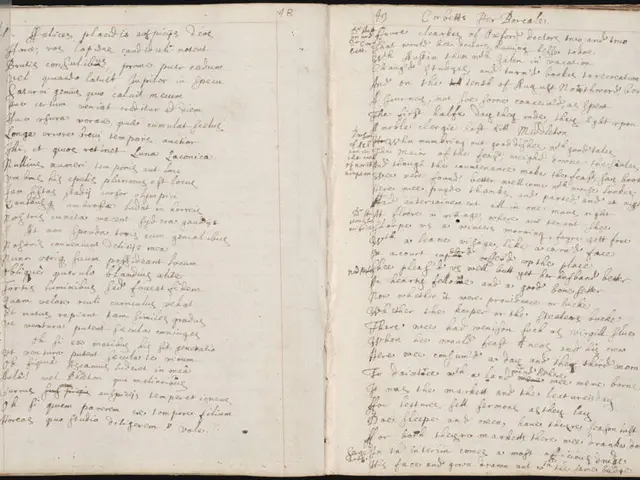Weekly developments in the German Federal Parliament
German Federal Government Releases Report on Cultural and Educational Foreign Policy for 2021
The German federal government has presented its report on Cultural and Educational Foreign Policy (KEFP) for 2021, highlighting the strategic use of cultural and educational programs abroad to promote the country's values and reputation. The report addresses challenges such as the COVID-19 pandemic, the climate crisis, and geopolitical developments in Belarus and Afghanistan by integrating these themes into Germany’s external cultural and educational engagement as key priorities.
Foreign Cultural Policy Objectives
Programs such as DAAD professorships abroad are explicitly designed to serve Germany’s foreign-cultural policy (außenkulturpolitische Ziele), projecting a curated, positive image of Germany as an attractive place for study and research internationally.
COVID-19 Pandemic Response
The report integrates lessons from the pandemic, highlighting adaptations to ensure continuity of cultural and educational exchange despite global disruptions. This includes digital formats and health-related safety measures to maintain engagement under pandemic conditions. The pandemic underscored the importance of resilient networks and international cooperation in cultural diplomacy.
Climate Crisis
The KEFP aligns Germany’s cultural and educational foreign policy with its broader climate goals. It promotes awareness and global dialogue around sustainability and climate protection through educational programs and international partnerships, aiming to contribute to climate crisis mitigation and adaptation efforts worldwide.
Developments in Belarus and Afghanistan
The report recognizes the strategic importance of these regions amid political upheaval and crisis. Germany’s cultural and educational foreign policy seeks to support civil society, democratic forces, and human rights defenders in Belarus and Afghanistan through targeted programs, scholarships, and institutional cooperation. These efforts aim to foster stability, promote democratic values, and provide educational opportunities for affected populations.
Bundestag Discussions and Funding
The Bundestag will discuss the 2023 Economic Report this week, and the distribution of seats in the Bundestag will accurately reflect the parties' relative second vote results, with the principle of personalized proportional representation remaining in place. A total of 2.3 billion euros were available for the tasks and goals of Cultural and Educational Foreign Policy in 2021.
Private-Sector Investments and Innovation Programs
Private-sector research and development expenditures increased by around six percent in 2021 compared to the previous year, due in part to increased demand from innovative Mittelstand companies for funds from the Central Innovation Program Mittelstand (ZIM). The federal government's Economic Report for 2023 discusses measures that can support companies in overcoming challenges under difficult conditions. Around 3,500 research projects are funded annually through the ZIM, with about a third of these having a clear reference to ecological innovations.
Regulations and Restructuring
The federal government has proposed a regulation that regulates the conditions for financial compensations to avoid double financial burden for operators of facilities that fall under both the EU-ETS and the BEHG. The federal government also plans to restructure the Independent Patient Counseling and secure its funding through a new foundation under civil law: the Independent Patient Counseling Foundation.
The Economic Outlook
The Council of Experts' Annual Report for 2022/23 states that the economic outlook is significantly clouded due to the energy crisis caused by Russia's attack on Ukraine. The report also notes the ongoing negative economic consequences of the COVID-19 pandemic and ongoing supply chain disruptions.
In sum, the 2021 KEFP report situates Germany’s cultural and educational diplomacy as a key element in addressing global challenges, including pandemic recovery, climate action, and geopolitical crises in Belarus and Afghanistan, leveraging academic, cultural, and network-based tools to support foreign policy goals and international cooperation. The approach reflects a calculated use of soft power to maintain Germany’s positive international profile and influence.
- The German Federal Government's report on Cultural and Educational Foreign Policy (KEFP) for 2021 demonstrates the strategic integration of this policy into the broader realm of policy-and-legislation, aiming to address global issues such as the COVID-19 pandemic, the climate crisis, and geopolitical developments in Belarus and Afghanistan.
- Despite the various challenges in Belarus and Afghanistan, the KEFP focuses on strengthening political relations through education and cultural exchange, with a particular emphasis on supporting civil society, democratic forces, and human rights defenders, making it an essential part of Germany's general-news and politics agenda.








